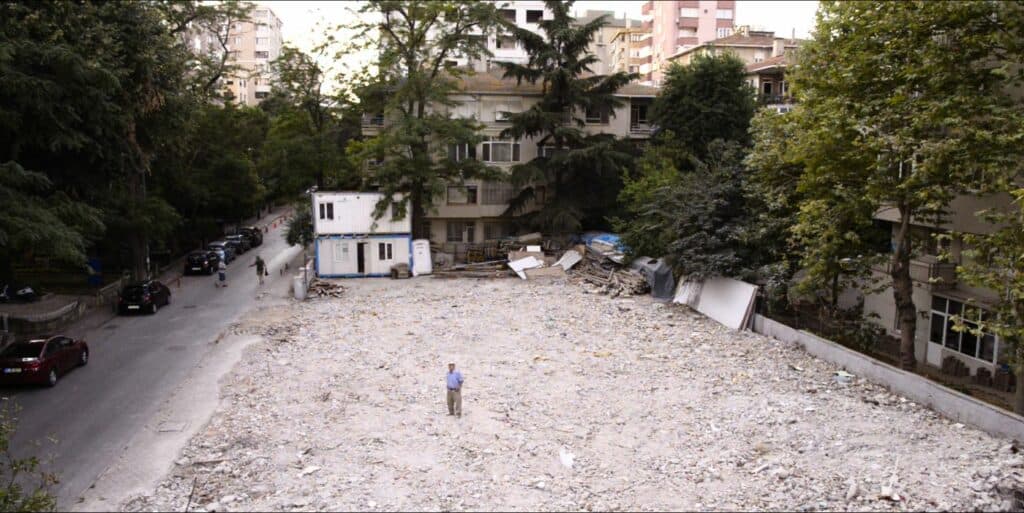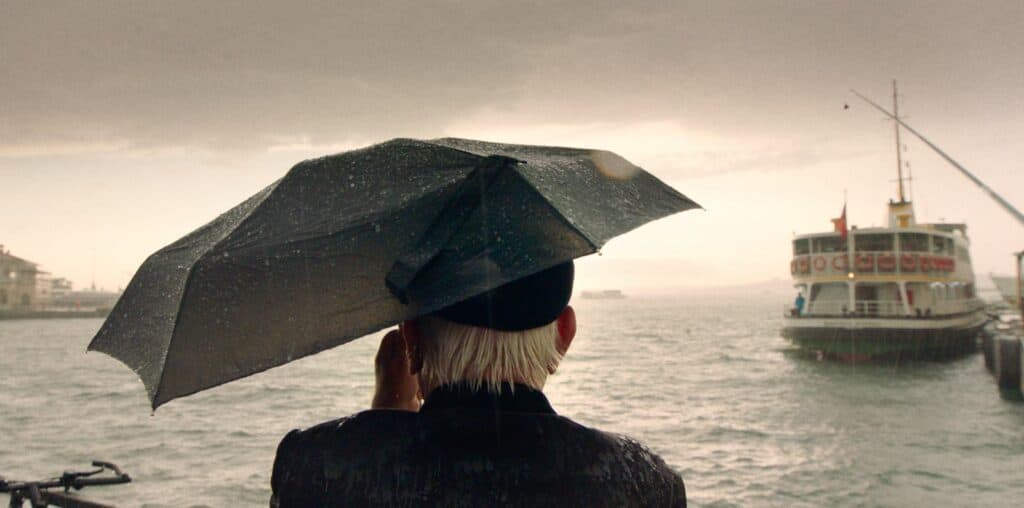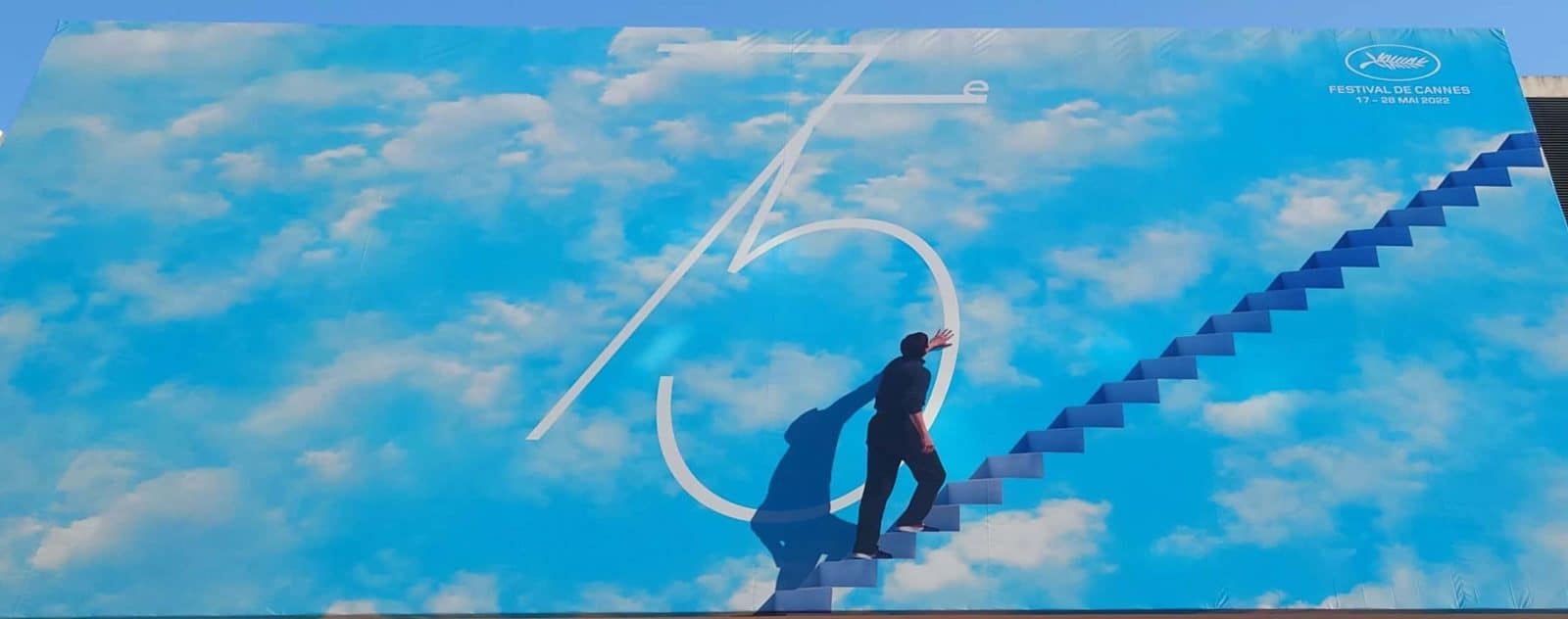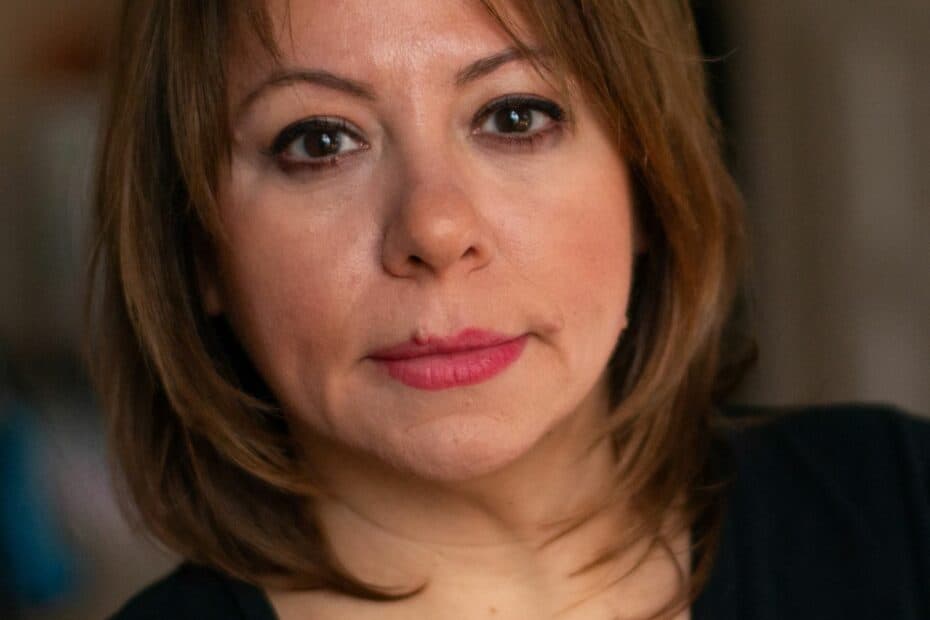Faruk by Asli Özge (reviewed here) won the FIPRESCI Panorama award at the 2024 Berlinale. I was lucky enough to conduct an interview with Asli Özge, the director of the film, about her father, Faruk Özge. The film plays with different meta layers since we see Asli, the director, working on the film and directing the actors, not least the father.
The film is set in Istanbul, but as I understand, you’ve been based in Berlin for quite some time.
I’ve been in Berlin since 2000. I still go to Istanbul every three months or so since my father lives there. I have many friends and family there, so I’m really close with everything.
This project has been going on for seven years. Have you been shooting during all this time as well?
First, I wanted to make a documentary film, but then I realised that it’s difficult to observe everything and be there since I’m living in Berlin. Then, I decided to write a script and just put everything I had already experienced in the script. We started doing casting, but of course, I wanted to keep the real locations like my father’s house and some neighbours. Still, we also did some casting, so in the film, we see a bunch of neighbours, but not all of them are really neighbours from this building; they are actors. So, it came to a moment where fiction and reality meet.
Was the meta aspect of the film there from the start?
With the actors who are not professionals, I think it’s better if you give them something to hold on to from life, so I use their real names if I can, and then I added layers from there. However, until last year, it had never been in my mind to show the film that Asli was shooting. I never showed Asli. She was in phone conversations, but that was it. During the last year, I decided to add her and mix the film she is making with the one I’m making.

That only came in the last year of a seven-year project?
Yes, in the beginning, I was focused on the theme of gentrification, but eventually, I decided to shoot things with Asli…
...and she was willing to do that.
Yes (laughing), and then I wanted to add things that also matter to Asli in the film, such as my father, who is getting older, making the film, and so on. She is someone who is fighting for her future.
And so is Faruk.
Exactly. So that was the idea. To show things that mattered to her as well. Considering what happens later in the film, I thought it was also important to see things from Asli’s side. I also wanted to play with the form even more than in my previous films. I really wanted the spectator to ask if a scene was reality or Asli’s film.
Talking about age and transformation, both of the city and Faruk, a line stuck in my mind. It is when a woman says, “There are only two kinds of stones: tombstones and building stones.” That is almost a summary of the film’s themes.
She says something very ordinary, but it could mean something bigger as well. She is really trying to impress the others, but the phrase could have other meanings, too, for sure.
The interview with Asli Özge goes formal
How much is fiction, and how much is “real” in the film?
For example, the demolition of the building was real. We were there when it happened and documented that. The meetings the men have when they discuss the projects are acted out.
Sure, since we see your direction in those scenes.
The scenes when I directed Faruk were added during the last year. Sometimes, they were old shots of me directing him, and sometimes, we reshot those scenes during the last twelve months.

You said the original idea was to make a documentary, but how would you label the finished work?
I would say it is dramatic fiction with hybrid elements. My father was acting a part. He wasn’t just playing himself. Some things you see in the film don’t reflect his ideas at all.
What about his age? He is not over 90, I guess. That was the clearest sign of fiction to me.
He is! He is 96 now. The birth date he says in the film is his real one.
He looks so much younger. When I heard his age, I didn’t know what to trust in the film anymore. I felt lost, but that turned out to be true.
I wanted the audience to get lost. That’s what I wanted to achieve, but that part was true.
How did you approach the film from a stylistic point of view, like the cinematography?
I always work with Emre Erkmen, and he knows very well what I want. My earlier films were more stylised. In Faruk, I wanted some shots with a documentary feel while others would feel confident that it is fiction.
The camera is not moving that much.
Exactly. That’s one example. We were trying to work against it in a way, but in the fiction scenes, there are often some camera movements.


